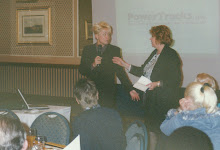A job is job but a career … well, a career is different. When jobs in your career field are few, however, some may feel no other option but to accept any job offer. After all, will another come along? If so, when? But is taking any job, even in your field, the right career strategy or is sacrificing in the short-term a far better option; regardless of the difficulties encountered?
While most know their personal circumstances and how far they can stretch the ole’ budget before succumbing to any job offer, I wondered how many really take the time to evaluate the long-term effect of satisfying a relatively short-term need. Money-guru, Suze Orman, and others slap the hands of people who squander their earnings without squirreling away something for emergencies but, if you haven’t, crying over spilled milk is not going to change the situation.
Still, this raises an interesting question: Are you compelled to take “any” job just to support a lifestyle as a result from previous employment? Is this enough or do you want a career that can help you fulfill your aspirations? If the latter, a job transition period maybe just the opportunity you need to get yourself on track to what you really want to do.
Career coach, Stacy Harshman, has some important advice for the question of whether or not to take any job. Quite simply: “You should do everything you can to avoid it.” Click here for Stacy's blog. According to Stacy, there are a number of reasons why you should avoid doing this but, most importantly, you need to remember that “you are the CEO of your career; therefore, you must be strategic in planning your future.” This is a large concept but one that many people fail to remember especially when panic about paying next month’s rent sets in.
Now, for the interesting and near mystical part: Just worrying about a situation isn’t going to change things just as applying for any job isn’t going to do much for your career. To bring about what you really want, laser-like focus is necessary. Think of it as shooting wildly at anything that moves. You’re sure to hit something but it just may not be what you intended. However, if you take a step back, even if for just a few minutes, and think through the process of what you are intending to accomplish, it will be easier and faster to zero in on the target and begin making a concerted effort to hit that target.
Executive Onboarding Note: The Importance Of The Confidence To Be Open To
Help
-
While executive onboarding, get help. If it’s offered, take it. If it’s not
offered, find it.
The post Executive Onboarding Note: The Importance Of The C...
7 years ago



